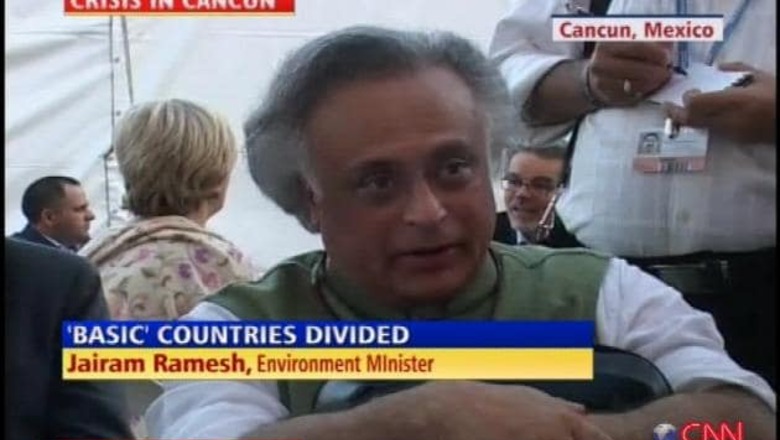
views
Cancun: Facing pressure to accept legally-binding emissions cuts, India on Thursday made it clear that it will not budge from its long-held position on the issue, while insisting that it has shown flexibility on various other matters like domestic voluntary reductions.
India was not ready to show flexibility at this stage on the issue of binding emission cuts and will insist on a second commitment period under the Kyoto Protocol which is set to expire in 2012, Environment Minister Jairam Ramesh said at the UN climate summit in Cancun.
"There can be no flexibility on these," he said.
As per Kyoto Protocol, rich nations are supposed to take legally-binding emission cuts, while no such provision exists for developing countries.
India, along with most of other developing countries, has been maintaining that taking up binding emissions cuts will hamper its growth, including poverty alleviation efforts.
Referring to the "flexible" stance taken by India in the past one year since the Copenhagen climate meet, Ramesh said India's position on climate change has been evolving and needs to evolve further.
In this context, he referred to the domestic voluntary cuts being taken by the country as also the decision to allow scrutiny of its climate actions.
He later said that he made the remarks to reassure developing countries like Nepal and Bangladesh - which have been piling up pressure on emerging economies for a legally-binding agreement on emissions cuts - that "New Delhi is committed to fulfilling its domestic obligations to cut its carbon intensity."
Among developing countries calling for a legally-binding commitment are India's close allies on climate change - Brazil and South Africa - as well as African states and small island nations.
In the next two years, the clamour from fellow developing countries to take on legally-binding commitments is expected
to grow.
"As the demands build up, India needs to demand from a position of sensitivity," Ramesh said.




















Comments
0 comment